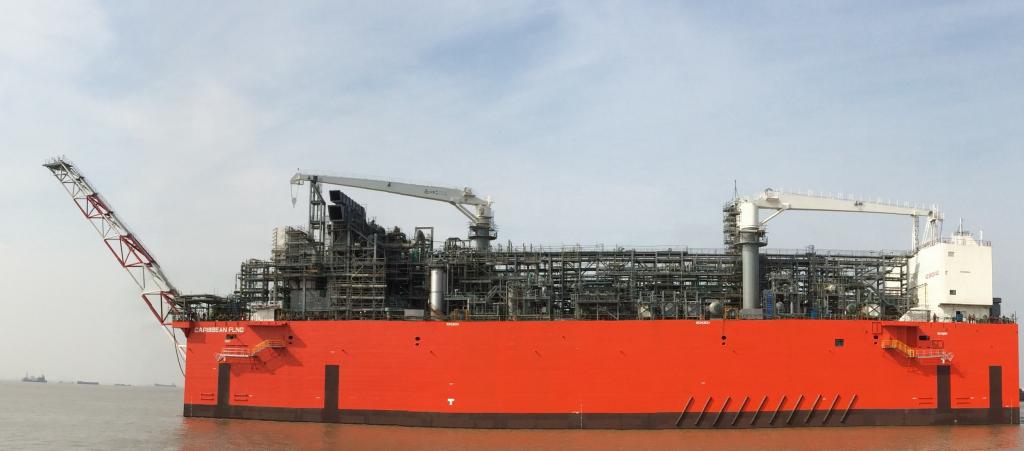Argentina's YPF Books Floating Liquefaction Barge
The floating liquefaction barge, Caribbean FLNG, is to be redeployed to Argentina by its Belgian shipowner Exmar.
It will be renamed 'Tango FLNG' and deployed to the port of Bahia Blanca in 2Q 2019, following the signature of the firm's 10-year agreement with Argentinian state producer YPF, Exmar said November 21. The FLNG barge will produce and export LNG derived from gas from the Vaca Muerta shale project at the Neuquen Basin in Argentina. The FLNG barge has capacity to produce 0.5mn metric tons/yr.
|
Advertisement: The National Gas Company of Trinidad and Tobago Limited (NGC) NGC’s HSSE strategy is reflective and supportive of the organisational vision to become a leader in the global energy business. |
"Argentina will thus become a relevant and reliable LNG supplier for both regional and world markets," said Exmar's statement, with up to eight LNG cargoes produced per year by its FLNG barge. The arrangement consists of a tolling agreement between both parties, with the necessary permits and the infrastructure onshore confirmed as available. Exmar said the hire rate of the barge is partly based on a floating rate, with an expected pre-tax earnings (Ebitda) to Exmar of around $43mn/yr based on the estimated Tango FLNG's production and with "upside potential depending on the market environment".
Exmar said the barge's arrival on site and its start-up of operations are both anticipated during 2Q2019.
For a decade, LNG has been imported into Argentina using chartered regas ships (FSRUs) berthed at the ports of Bahia Blanca and Escobar; at least one of the ships – Exemplar at Escobar – sailed away permanently last month. But the country has now reached an inflection point, with gas imports ceasing, and exports as LNG due to begin in 2019. Last month Argentina resumed exports by pipe to Chile.
"Thanks to the commercial relationship with Exmar, we are now able to add value to the resources extracted from Vaca Muerta, and take full advantage of the seasonal opportunity with Asian markets and our unique location to serve demand centers," said YPF's president Miguel Gutierrez.
Exmar said the arrangement confirms the relevance and demand for providing innovative floating LNG solutions to a growing market. It had been in talks with YPF about such a solution in recent months.
"We are delighted to reach this agreement with YPF. It opens up new markets and opportunities for the fast-track monetisation of natural gas reserves along new routes of energy. We are confident that Exmar’s experience in the region and unique expertise in liquefaction will support YPF’s ambition to become a significant LNG supplier," said Exmar's CEO Nicolas Saverys.
Exmar said last month in its 3Q results that the barge was "ready at the yard, being prospected for several LNG export opportunities amongst others in Argentina for YPF," adding that it was "comfortable that the unit will be able to start its gas liquefaction operations in 2019". Originally the barge was to have been deployed in Colombia, but the project sponsor there Pacific Rubiales ran into money problems in 2016; the barge was delivered to Exmar last year and had been seeking a charter ever since.
YPF may be the first to sign a firm deal for a FLNG vessel, but it was not the only Argentinian firm to enter talks: gas pipelines operator Transportadora de Gas del Sur (TGS) signed a memorandum of understanding with US-based shipowner Excelerate Energy in September to evaluate the development of an export terminal; work is understood to be ongoing.

The floating liquefaction barge which will be deployed to Argentina and renamed 'Tango FLNG' - courtesy of Exmar




